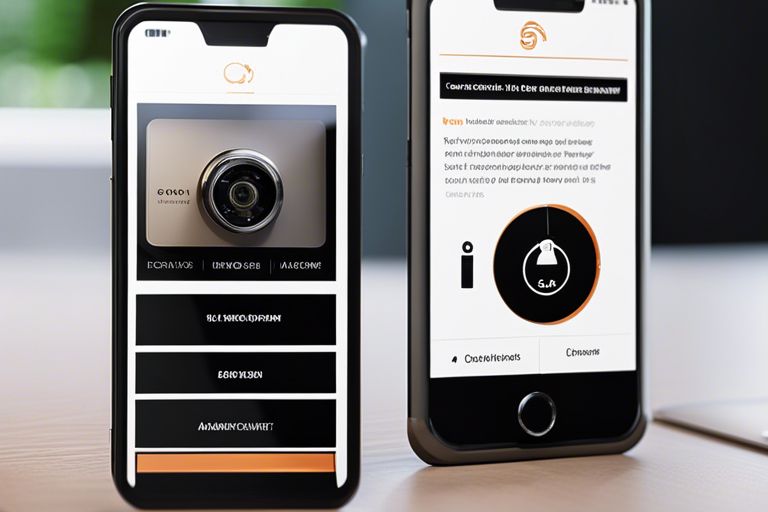In this rapidly evolving digital landscape, small businesses face increasing challenges in securing their valuable data and assets. As technology advances, so do the tactics of cybercriminals, making it crucial for small businesses to stay ahead of potential threats. From cloud security and biometric authentication to artificial intelligence-powered tools, the future of small business security holds promising developments to safeguard against ever-changing risks. This blog post explores some of the key emerging trends and technologies that will shape the landscape of small business security in the years to come, helping business owners make informed decisions to protect their interests.
Key Takeaways:
- Small businesses are increasingly vulnerable to cyber threats: As technology advances, small businesses are becoming prime targets for cyber attacks due to their lack of robust security measures.
- Investing in cybersecurity is crucial: Small businesses must allocate budget and resources towards implementing cybersecurity measures to protect their valuable data and sensitive information.
- Employee training is necessary: Human error is a common cause of security breaches, so it is vital for small businesses to provide regular training to educate employees on best practices for cybersecurity.
- Utilise encryption and multi-factor authentication: Small businesses should implement encryption technologies and multi-factor authentication to add layers of security and protect against unauthorised access.
- Regularly update security systems: Small businesses must stay up-to-date with the latest security patches and software updates to ensure their systems are protected against emerging threats.
Technological Advancements in Security
AI and Machine Learning for Threat Detection
AI and machine learning have revolutionised threat detection for small businesses. These advanced technologies can analyse vast amounts of data in real-time, identifying patterns and anomalies that may indicate potential security threats. By leveraging AI and machine learning, small businesses can strengthen their security measures and proactively protect their sensitive information.
Blockchain for Data Integrity
Blockchain technology offers unparalleled data integrity for small businesses. By storing data in a decentralised and tamper-proof manner, blockchain ensures that information remains secure and unaltered. This technology provides a transparent and immutable record of transactions, enhancing trust and security for small businesses and their customers.
Utilising blockchain for data integrity not only safeguards sensitive information but also helps small businesses comply with regulatory requirements and build a reputation for reliability in an increasingly digital world.
Protecting Against Cyber Threats
Strategies for Preventing Cyber Attacks
Implementing robust cybersecurity measures is crucial for small businesses to protect against potential cyber threats. This includes regularly updating software, installing firewalls, using encryption, and implementing strong password policies. Conducting regular security audits and penetration testing can help identify vulnerabilities and mitigate risks proactively.
Training Employees in Cybersecurity Best Practices
Training employees in cybersecurity best practices is crucial in creating a strong line of defence against cyber threats. Educating staff on identifying phishing emails, avoiding malicious links, and securing sensitive information can significantly reduce the risk of a security breach. Regular training sessions and simulated phishing exercises can help reinforce these practices and keep employees vigilant.
Physical Security Innovations
Smart Surveillance Systems
Smart surveillance systems are revolutionising the way small businesses protect their premises. With features such as facial recognition, motion detection, and mobile alerts, these systems provide real-time monitoring and enhanced security. Business owners can now have peace of mind knowing that their property is being closely watched, even when they are not physically present.
Access Control and Employee Safety
Access control systems are becoming important for small businesses to manage entry to their premises effectively. These systems not only enhance security by restricting unauthorised access but also help in ensuring employee safety. With advanced technologies like biometric scanners and keyless entry, businesses can control who enters their building and track employee movements for added security.
Implementing access control measures can also improve emergency response times by providing accurate information on who is in the building during a crisis. This proactive approach to security is crucial for safeguarding both assets and personnel.
The Role of Policy and Compliance
Understanding Privacy Laws and Regulations
In today’s digital age, it is vital for small businesses to have a solid understanding of privacy laws and regulations that govern the collection, storage, and sharing of customer data. Compliance with laws such as the General Data Protection Regulation (GDPR) and the Data Protection Act is crucial to avoid hefty fines and maintain customer trust. Small businesses must stay up-to-date with any changes in legislation to ensure they are meeting their legal obligations and protecting their customers’ sensitive information.
Developing a Robust Security Policy
Developing a robust security policy is vital for the protection of your small business from cyber threats. This policy should outline clear procedures for data handling, access control, employee training, incident response, and compliance monitoring. By establishing a comprehensive security policy, small businesses can create a culture of security awareness and ensure that all employees understand their roles and responsibilities in maintaining a secure work environment.
Creating a robust security policy requires a detailed assessment of the business’s specific security needs and potential risks. This involves identifying valuable assets, assessing potential vulnerabilities, and implementing appropriate controls to mitigate security threats. Regular reviews and updates to the security policy are necessary to adapt to evolving cybersecurity risks and ensure ongoing compliance with relevant regulations.
The Future of Small Business Security
As technology advances and cyber threats become more sophisticated, the future of small business security will require a proactive and multi-layered approach. Implementing strong cybersecurity measures, regular security audits, employee training, and investing in cutting-edge security solutions will be crucial for protecting sensitive business data and maintaining customer trust. Small businesses must stay vigilant and adaptable to keep up with the evolving security landscape. By prioritising security, businesses can safeguard their assets, reputation, and future growth in an increasingly digital world.
FAQ
Q: Why is small business security important?
A: Small business security is crucial as it protects sensitive data, financial information, and intellectual property from cyber threats.
Q: What are the common security threats faced by small businesses?
A: Small businesses often face threats like phishing attacks, ransomware, malware, and insider threats that can compromise their security.
Q: How can small businesses improve their security measures?
A: Small businesses can enhance their security by implementing strong password policies, conducting regular security audits, training employees on security best practices, and investing in cybersecurity solutions.
Q: What role does employee training play in small business security?
A: Employee training is important in raising awareness about security threats, teaching best practices, and ensuring that employees know how to respond to potential security incidents.
Q: How can small businesses stay ahead of evolving security threats?
A: Small businesses can stay ahead of evolving security threats by staying informed about the latest trends, regularly updating their security systems, and partnering with cybersecurity experts to assess and strengthen their defences.






